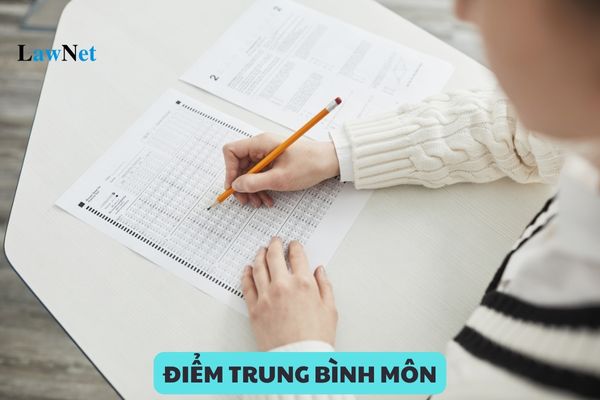How to calculate semester and annual average scores for upper secondary school students in Vietnam?
How to calculate semester and annual average scores for upper secondary school students in Vietnam?
Based on Article 9 of Circular 22/2021/TT-BGDDT, the calculation of semester and annual average scores for upper secondary school students in Vietnam is carried out as follows:
a) For subjects assessed via feedback
- In a semester, learning results of each subject of a student shall be concluded as either: “Đạt” (Qualified), or “Chưa đạt” (Unqualified).
+ Qualified: When the student attends all examination and assessment under this Circular and obtain assessment at Qualified category.
+ Unqualified: Remaining cases.
- In a school year, learning results of each subject of a student shall be concluded as either: “Đạt” (Qualified), or “Chưa đạt” (Unqualified).
+ Qualified: Learning results of the 2nd semester is placed in Qualified category.
+ Unqualified: Learning results of the 2nd semester is placed in Unqualified category.
For subjects assessed via both feedback and scores
- Average score of a subject in a semester (hereinafter referred to as “DTBmhk”) is calculated as follows:
|
DTBmhk = |
TDDGtx + 2 x DDGgk + 3 x DDGck |
|
Number of DDGtx+ 5 |
TDDGtx: Total scores of regular assessment.
- Average scores of the subject for the entire school year (referred to as “DTBmcn”) is calculated as follows:
|
DTBmcn = |
DTBmhkI + 2 x DTBmhkII |
|
3 |
DTBmhkI: Average score of the subject in the 1st semester.
DTBmhkII: Average score of the subject in the 2nd semester.

How to calculate the semester average, yearly average for high school students? (Image from Internet)
How to calculate semester and annual average scores for upper secondary school students with disabilities in Vietnam?
Based on Article 11 of Circular 22/2021/TT-BGDDT, the assessment of the training and learning results of upper secondary school students with disabilities is carried out as follows:
- Assessment of training and learning results of students with disabilities shall be implemented along with motivating and encouraging improvement of the students.
- For students with disabilities who learn in form of inclusive education, training and learning results of subjects which students can satisfy as per requirements of formal education program shall be assessed in a manner similar to those of regular students with a slight decrease in requirements for training and learning results.
Subjects which students with disabilities are in capable of satisfying as per requirements of formal education program shall be assessed according to personal education plans; subjects which the students with disabilities are exempted from shall not be examined and assessed.
- For students with disabilities who attend to specialized education methods, training and learning results of the students that satisfy requirements of specialized education program shall be assessed according to regulations on specialized education.
For subjects which students with disabilities are incapable of satisfying according to specialized education requirements, assessment of training and learning results shall be conducted based on personal education plans.
What are conditions for grade advancement of upper secondary school students in Vietnam?
Based on Clause 1, Article 12 of Circular 22/2021/TT-BGDDT, the grade advancement, re-assessment during summer break, and grade retention are stipulated as follows:
Grade advancement, re-assessment during summer break, and grade retention
1. A student who meets following eligibility may advance to the next grade or be recognized as to have completed lower education program or upper education program:
a) Training results of the entire school year (including re-assessment results after training during summer break according to Article 13 hereof) are Qualified or higher.
b) Learning results of the entire school year (including re-assessment results of all subjects according to Article 14 hereof) is Qualified or higher.
c) Number of days leave does not exceed 45 half-days (calculated according to education plans which is 1 half-day for every day under formal education plan, including permitted leave, unpermitted leave, continuous leave, and intermittent leave).
...
Thus, upper secondary school students meeting the following conditions are eligible for grade advancement:
- Training results of the entire school year (including reassessment results after summer break training as prescribed in Article 13 of Circular 22/2021/TT-BGDDT) are Qualified or higher.
- Learning results of the entire school year (including reassessment results for subjects as prescribed in Article 14 of Circular 22/2021/TT-BGDDT) is Qualified or higher.
- Number of days leave does not exceed 45 half-days (calculated according to education plans which is 1 half-day for every day under formal education plan, including permitted leave, unpermitted leave, continuous leave, and intermittent leave).

